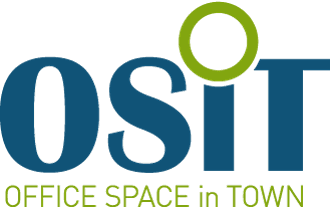Understanding neurodiversity in the workplace can open up new talent pipelines
Various studies estimate that 15-20% of the world’s population is neurodiverse, with conditions including autism spectrum disorder (ASD), attention deficit hyperactivity disorder (ADHD), dyslexia and dyspraxia, among others. But despite neurodiverse conditions being so common, the workplace can be a difficult space for neurodiverse employees to navigate.
According to reporting by law firm Dentons, only 16% of autistic adults are in full-time paid employment and 45% of people with autism have lost or left their jobs because of the challenges they face. This is, in part, because the workplace simply isn’t designed for colleagues with neurodiverse conditions – the traditional nine-to-five, office-working inflexible model does not recognise the need for inclusion. However, this is changing as employers are increasingly coming to recognise the benefits of a neurodiverse workforce.
As Georgia Sandom, Operations and ESG Manager at flexible workspace provider Office Space in Town told PFM: “Embracing neurodiversity in the office not only fosters inclusivity but also brings numerous advantages for both employees and employers. Neurodiverse individuals often possess unique strengths that can greatly benefit the workplace.”
She went on: “For example, those with autism frequently demonstrate exceptional attention to detail, strong pattern recognition abilities, and heightened problem-solving skills. By creating an environment that appreciates these strengths, rather than avoiding or overlooking them, companies can dive into a pool of talent that brings fresh perspectives and innovative approaches to problem-solving.”
Indeed, recognising and respecting neurodiversity in the workplace can strongly contribute to enhancing overall productivity and efficiency. “Neurodiverse individuals often exhibit a high degree of focus and dedication to their work, resulting in heightened levels of performance in specific areas,” Georgia said.
“When employees with diverse neurological profiles feel valued and accepted, they are more likely to contribute their unique perspectives and ideas. This diversity of thought can lead to enhanced problem-solving, creativity, and innovation within teams. Leadership strength Bianca Angelico, the founder of guest service company On Verve, says that her dyslexia has been a strength as far as business leadership is concerned.
“My creativity that has come from my experiences with dyslexia has helped to build On Verve into the unique business it is. It has given me the opportunity to think beyond the traditional norms of the guest services industry and understand the new offering we’re bringing to the industry,” she said.
So what can businesses do to support neurodiverse staff? “A positive workspace that embraces and values neurodiversity can profoundly influence employee satisfaction and dedication, fostering a strong sense of belonging and loyalty among the staff, Georgia said. “By providing accommodations and tailored support, such as flexible work arrangements or having a designated quiet space, companies can create an environment that allows neurodiverse employees to thrive and reach their full potential.
” Inclusive initiatives Companies within the FM sector can also sign up for initiatives to help ensure greater workplace inclusion of the neurodivergent community; in March, Churchill Group joined the Neurodiversity in Business charter, which was launched in 2021 and does exactly this. Melanie Taylor, HR Director at Churchill Group commented: “Across Churchill’s group of specialist businesses we believe in always doing right, always seeking better and always put people first. It’s important to us that our colleagues feel they can bring their whole self to work and flourish. As we work closely with our partners and clients, we continue to grow our truly inclusive culture and workforce.
She continued: “Our partnership to NiB demonstrates the commitment to our colleagues, the communities in which we work and creating opportunities to thrive. NiB has various big names as a part of their founding members, including some mutual clients with Churchill. Working alongside our clients this way and demonstrating our shared values is extremely important to us.” Echoing Melanie’s comments, Georgia said: “Embracing neurodiversity in the office is not only the right thing to do but also a strategic decision that can drive long-term success for companies in a diverse world.”
